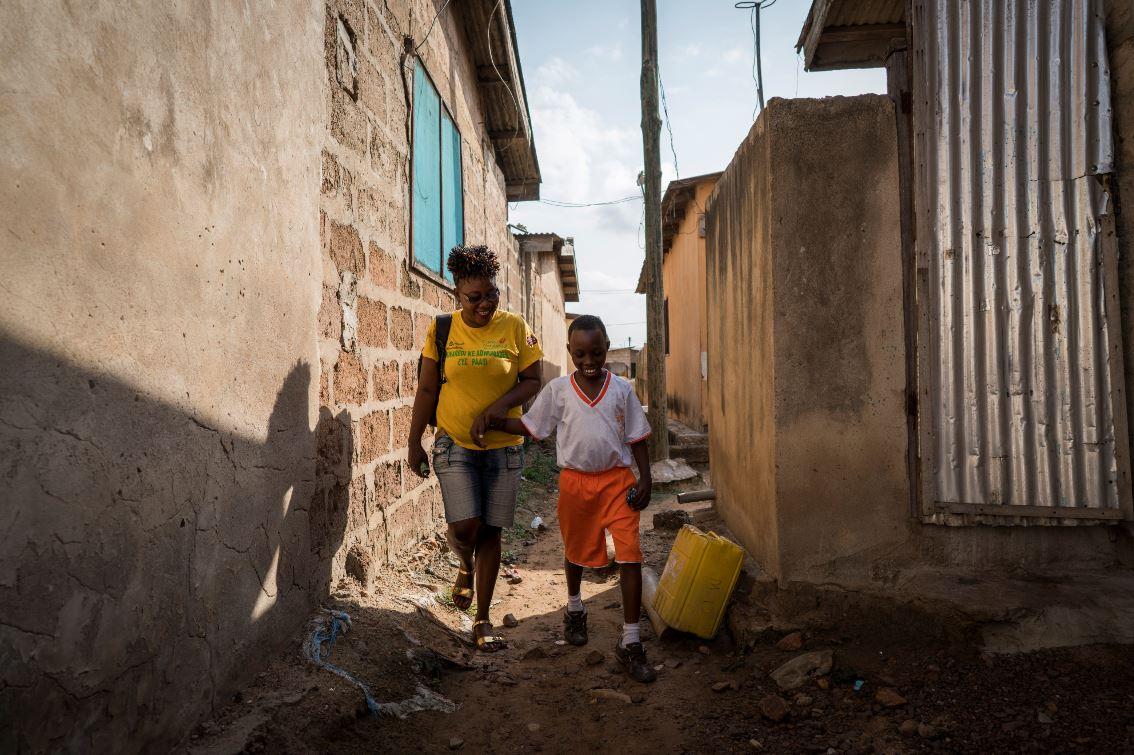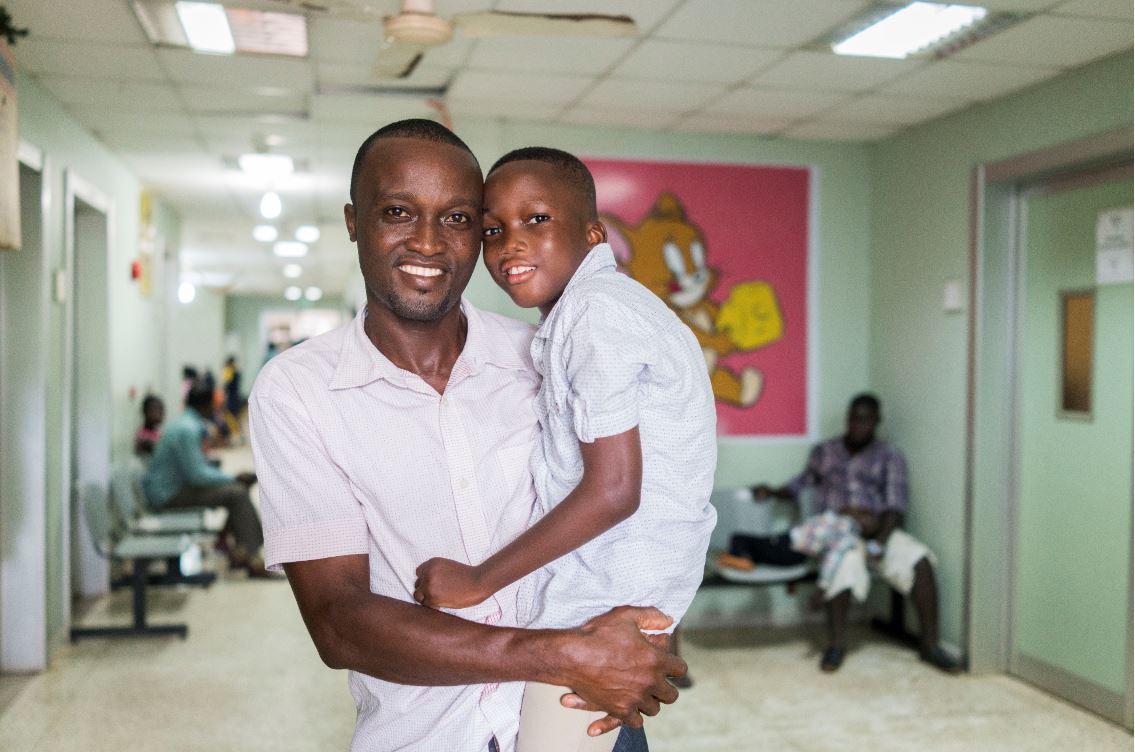Government of Ghana Launches First of Its Kind Public-Private Partnership With Novartis to Improve Diagnosis and Treatment of People With Sickle Cell Disease
DAVOS, Switzerland, January 24, 2019 /3BL Media/ – Today, at the World Economic Forum, the Government of Ghana announced a new public-private partnership to improve the diagnosis and accelerate treatment for people with sickle cell disease (SCD), making Ghana the first African country to commit to offering the global standard of care for their people with SCD.
The Ministry of Health of Ghana, Ghana Health Service, the Sickle Cell Foundation of Ghana and global medicines company Novartis have signed a Memorandum of Understanding to
create a holistic approach to help tackle the disease. The partnership aims to improve and extend the lives of people with SCD through a comprehensive approach to screening and diagnosis; treatment and disease management; training and education; and elevating basic and clinical research capabilities. Specifically, the partners aim to collaborate on field testing and implementation of SCD treatment guidelines, the establishment of centers of excellence across regions and the implementation of newborn screening at these centers.
“We are pleased to partner with the Sickle Cell Foundation and Novartis in order to address sickle cell disease in Ghana,” said Hon. Kwaku Agyemang-Manu, Minister of Health of Ghana. “We are committed to put SCD among the priorities on our national health agenda and to put the required resources behind it. We invite like-minded partners from the public and private sectors to join us in this effort. Together, we can actively contribute to ending preventable deaths of newborns and children under 5 years of age, as set out in the UN Sustainable Development Goals.”
Sickle cell disease is recognized by the World Health Organization as a public health priority and a neglected health problem in sub-Saharan Africa. Approximately 80% of individuals with
SCD globally are born in sub-Saharan Africa, and there is evidence to suggest that more than half of affected individuals may die before the age of five due to preventable complications. In Ghana, it is estimated that 15 000 babies are born with sickle cell disease every year.1
“We’ve known about sickle cell disease in Africa for hundreds of years, but what has not been widely known until the last 40-50 years is how rapidly SCD kills young children,” said Prof. Kwaku Ohene-Frempong, MD, President of the Sickle Cell Foundation of Ghana and Program Coordinator for the National Newborn Screening Program for Sickle Cell Disease. “Our biggest challenge is that we simply don’t make the diagnosis early enough. Ghana is one of the few African countries that has a newborn screening program. But there’s not a single country that tests all their children for SCD. As a result, we are losing hundreds of thousands of babies across Africa each year without even a diagnosis of the disease.”
The partners also plan to collaborate to improve accessibility of high quality treatment for patients in Ghana. In 2018, Novartis submitted hydroxyurea, the current general standard of care for severe SCD, for registration for the specific indication of SCD in Ghana. The Ghana FDA granted marketing authorization three months ahead of schedule (25 October 2018), making it the first time that hydroxyurea will be available to patients for this indication in Ghana. Discussions are underway for inclusion of the medicine and associated laboratory testing in the National Health Insurance Scheme, as well as prioritizing this as a national program, with direct distribution through the Ministry of Health. Hydroxyurea treatment is expected to start reaching hundreds of patients with SCD in 2019.
Novartis has also committed to explore the development of a child-friendly formulation of hydroxyurea and conduct clinical trials in Ghana for its next-generation treatments for SCD, including crizanlizumab. In addition, the company expressed its intent to help further strengthen local research and medical capacity through support of training and mentoring opportunities for the scientists and healthcare professionals, as well as to support ongoing monitoring and evaluation of the various interventions.
“Novartis has a long-term commitment to ensuring that our medicines, and healthcare in general, are accessible to as many patients as possible,” said Vas Narasimhan, MD, CEO of Novartis. “Our hope is that we’ll continue to reimagine the way this disease is treated, in order to offer better medicines and improved care to sickle cell patients in Africa and around the world. I am proud that Novartis is committed to addressing this challenge.”
About Sickle Cell Disease
Sickle cell disease is a hereditary and life-threatening condition that causes ongoing damage to red blood cells, blood vessels, and organs2,3. The disease affects the hemoglobin in red blood cells making the cells misshapen, stiff, sticky, and also damaging to blood vessels 4,5. When blood cells stick to one another they can form clusters in the bloodstream, which can block the flow of blood and oxygen, leading to complications such as stroke, lung, kidney and other organ damage and severe recurrent pain crises (known as vaso-occlusive crises)3,4. It is a lifelong illness that can put an emotional, physical, and financial burden on patients and their families6,7.
SCD is a global health problem, with the highest burden of disease concentrated in sub-Saharan Africa. In countries in West, Central and East Africa, the prevalence of the sickle cell gene is between 10 to 30 percent, while in some areas it is as high as 45%8. It is estimated that approximately 1 000 children in Africa are born with SCD every day and more than half die before they reach five years of age9. This is due primarily to lack of early diagnosis through newborn screening, penicillin prophylaxis, parental education, and comprehensive care. In resource-poor countries, more than 90 percent of children with SCD do not survive to adulthood10. Despite the adoption by the WHO of an SCD strategy for Africa in 2010, the disease is largely absent from the global or national health agenda.
About Novartis
Novartis is reimagining medicine to improve and extend people’s lives. As a leading global medicines company, we use innovative science and digital technologies to create transformative treatments in areas of great medical need. In our quest to find new medicines, we consistently rank among the world’s top companies investing in research and development. Novartis products reach nearly 1 billion people globally, and we are finding innovative ways to expand access to our latest treatments. About 125 000 people of more than 140 nationalities work at Novartis around the world. Find out more at www.novartis.com.
Novartis is on Twitter. Sign up to follow @Novartis at http://twitter.com/novartis
For Novartis multimedia content, please visit www.novartis.com/news/media-library
For questions about the site or required registration, please contact media.relations@novartis.com
References
- Odame I. Perspective: We need a global solution. Nature. 2014 Nov;515(7526):S10
- Kaul D, Finnegan E, Barabino G. Sickle red cell-endothelium interactions. Microcirculation. 2009;16(1):97-111.
- Steinberg M. Management of sickle cell disease. N Engl J Med. 1999;340(13):1021-1030.
- Gutsaeva D, Parkerson J, Yerigenahally S, et. Inhibition of cell adhesion by anti–P-selectin aptamer: a new potential therapeutic agent for sickle cell disease. Blood. 2011;117(2):727-735.
- Sparkenbaugh E, Pawlinski R. Interplay between coagulation and vascular inflammation in sickle cell disease. J Haematol. 2013;162(1):1-22.
- Sanger M, Jordan L, Pruthi S, et al. Cognitive deficits are associated with unemployment in adults with sickle cell anemia. Journal of Clinical and Experimental Neuropsychology. 2016;38(6):661-671.
- Anim M, Osafo J, Yirdong F. Prevalence of psychological symptoms among adults with sickle cell disease in Korie-Bu Teaching Hospital, Ghana. BMC Psychology. 2016;4(53):1-9.
- https://www.afro.who.int/health-topics/sickle-cell-disease
- Scott D. Grosse, Isaac Odame, Hani K. Atrash, et al. Sickle Cell Disease in Africa: A Neglected Cause of Early Childhood Mortality. American Journal of Preventive Medicine 41, no. S4 (December 2011): S398-405.
- Bernadette Modell and Matthew Darlison. Global epidemiology of haemoglobin disorders and derived service indicators. Bulletin of the World Health Organization 86, no. 6 (June 2008): 480-487.
# # #
Further Information:
Novartis Media Relations
Central media line: +41 61 324 2200
E-mail: media.relations@novartis.com




